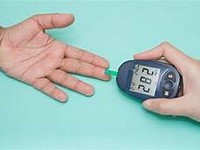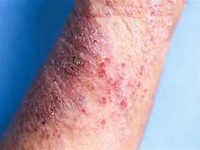
IRRITABLE BOWEL SYNDROME
FOODS THAT HARM
FOODS THAT HEAL
WHO’S AFFECTED
Irritable bowel syndrome (IBS) is often characterized by abnormal muscle contractions in the intestines, resulting in too little or too much fluid in the bowel
Symptoms vary markedly from one person to another
Some people experience urgent diarrhea
Others experience the type called spastic colon, with alternating bouts of diarrhea and constipation as well as abdominal pain, cramps, bloating, gas, and nausea, particularly after eating
There are no tests for IBS, which is diagnosed by ruling out colitis, cancer, and other diseases
Although it may be aggravated by food intolerances or
Allergies
, no specific cause has been establishedIt may be worsened by stress and emotional conflict, but it is not a psychological disorder
QUICK TIP:
Take peppermint oil capsules Take one or two enteric-coated capsules of peppermint oil between mealsThe oil should not be taken by people suffering from acid reflux disease
Nutrition Connection
Various dietary factors can play a major role in exacerbating or calming IBSWhile both the trigger foods and effects vary from person to person, these general guidelines will help eliminate some discomfort and some of the other symptoms: Eat several small meals
Avoid eating large meals and instead space meals out over the course of a day
This can reduce the increase in bowel contractions and diarrhea
Eat slowly
Eating too quickly may increase swallowed air, which promotes irritating intestinal gas
Also, poorly chewed foods can be more difficult to digest
Drink lots of water
To maintain adequate fluid, drink at least eight glasses of water or other beverages daily, but avoid such potential bowel irritants as alcohol and caffeine
Avoid fatty foods
Most doctors advise against eating fried and other fatty foods because fat is the most difficult nutrient to digest
Closely monitor fiber intake
Whole grain products and other high-fiber foods can pose problems for some IBS sufferers who have chronic diarrhea
On the other hand, if constipation is the predominant symptom, a diet that includes ample fresh fruits and vegetables, whole grain breads and cereals, nuts and seeds, and other high-fiber foods is usually recommended
Consider psyllium seeds
For persistent constipation, ask your doctor about taking ground psyllium seeds or another high-fiber laxative
Avoid chronic laxative use, which can lead to vitamin and nutritional deficiencies
Avoid sugar alcohols
The sugar substitutes sorbitol, lactitol, mannitol, and maltitol are used in a variety of foods and can trigger IBS symptoms in some people
For others, the lactose in dairy products and possibly fructose can exacerbate symptoms
Know which fiber you need
Insoluble fiber helps to bulk up stools and ease elimination, relieving IBS-associated constipation
Foods high in soluble fiber absorb water and are helpful for bouts of diarrhea
Consider probiotics
Recent research has found that probiotics may help relieve the symptoms of IBS
Probiotics have been shown to normalize bowel function in those suffering from IBS
Beyond the Diet
Because IBS differs from person to person, it’s essential to develop an individualized regimen to treat your symptomsBeyond the Diet
ary modifications described above, try the following: Track your triggersThe first step in learning to control IBS symptoms is recognizing the factors that may trigger symptoms
A diary that records IBS symptoms along with all foods and beverages ingested and stressful events can help pinpoint possible culprits
De-stress
It is common for stress to exacerbate IBS symptoms, so it is important to make an effort to develop effective relaxation techniques, such as meditation, yoga, and biofeedback
Exercise
Being active can be very therapeutic for people with IBS because it helps reduce stress: It can also normalize bowel function if constipation is a problem
Look to medications for relief
A doctor may prescribe medications to quell abnormal muscle contractions and alleviate diarrhea
Some recent research suggests that bacterial overgrowth in the bowel may be a cause of IBS
In one study, 78% of those with IBS were found to have bacterial overgrowth in the small intestine, and antibiotics eliminated the disease in half of those who got rid of the overgrowth
20% of all adults are affected by irritable bowel syndrome
Importance of well balance diet




